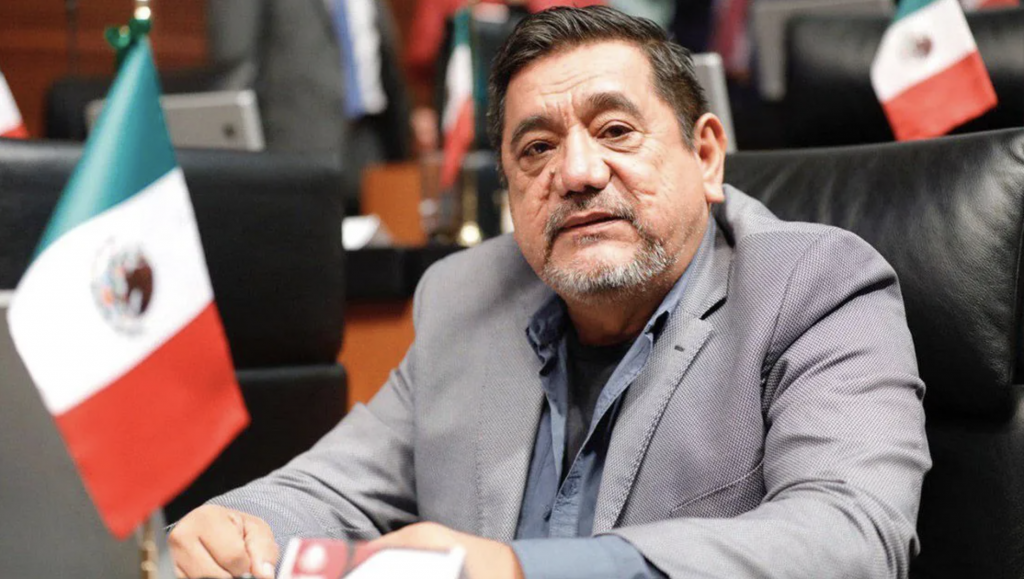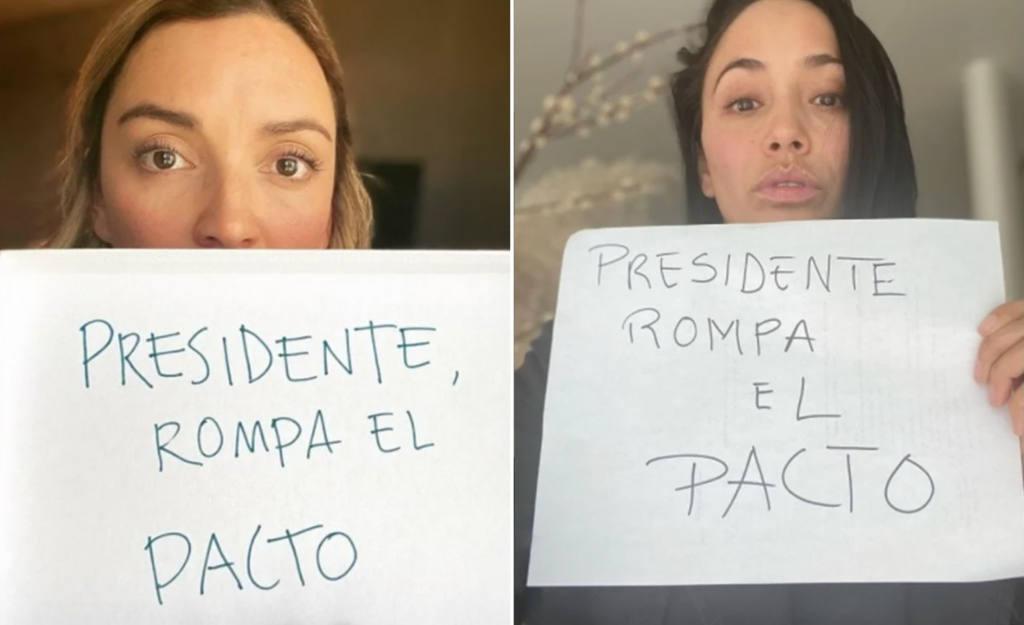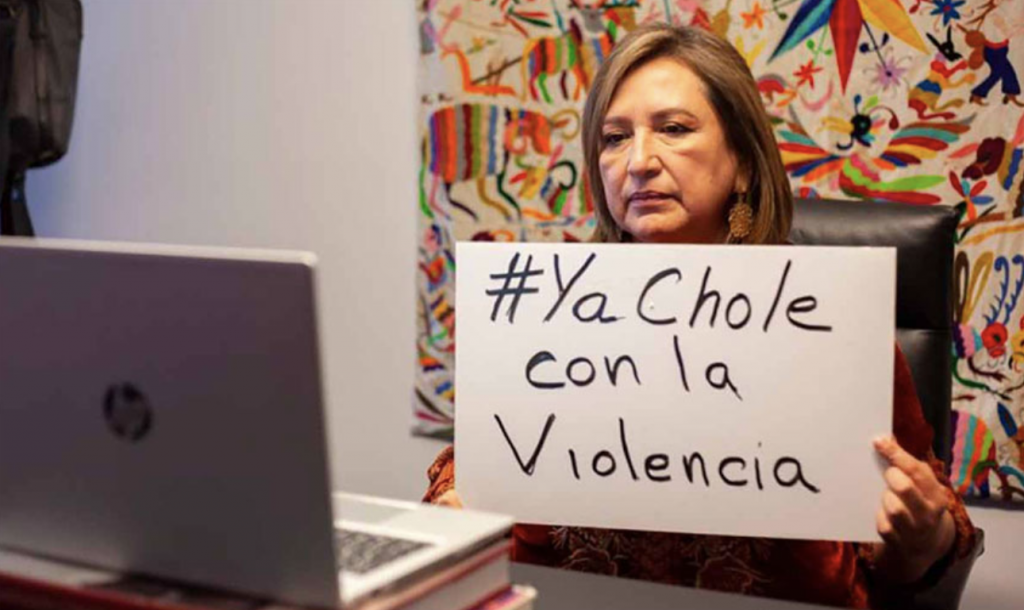03/09/21 (written by tmcginnis) – Félix Salgado Macedonio, former senator and now a registered candidate for the governorship of Guerrero for the 2021 state elections, faces multiple allegations of sexual assault, including two accusations of rape. Belonging to the ruling party MORENA (National Regeneration Movement), Reforma reports that Salgado Macedonio has received nearly unwavering support from President Andrés Manuel López Obrador (AMLO) prior to the party withdrawing his name. AMLO believes that it is up to the authorities and “the people” to resolve this matter, without the influence of politiqueros– political hacks and maneuverings. However, as noted by El País, President López Obrador is increasingly alone in that defense. Though MORENA eventually moved to pull Salgado Macedonio’s candidacy around February 27, the party is hardly able to truly impose itself on a candidate who has the support of the president. As a consequence, on March 4, the Electoral Institute of the state of Guerrero reversed the decision of MORENA and made his candidacy official. Thus, given the back and forth nature of defining Salgado Macedonio’s candidacy, it remains critically important to evaluate the mounting pressures from opposition parties, civil society campaigns, and even internal party divisions that led to the aforementioned decisions.
Government Response
According to La Jornada, at one of his traditional morning press conferences held in early February, President López Obrador reiterated his prior position on the matter, stating that the allegations and mounting oppositional pressures against Salgado Macedonio are products of the electoral season. In early January, he expressed that “when there are elections or [political] competition, it’s about discrediting the opponent in one way or another” (author’s translation). Resorting to previously observed strategies, AMLO has blamed the opposition and denounced “political lynchings,” as well as what he perceives as malicious media campaigns. According to the relevant minutes of a February 18 press conference compiled by El Universal, in response to questions regarding the reactions of various feminist groups and sectors that have denounced the candidacy, AMLO responded by arguing that those groups have the right to demonstrate and express themselves, just as the voters in Guerrero who support Salgado Macedonio have their right to elect him as their representative. He continued, defending the decisions made by the polls and the people of Guerrero. “First you have to trust the people, the people are the ones who decide” (author’s translation).
AMLO’s support should come as no surprise when considering possible motivations. For example, the president’s ability to govern comfortably hinges on the June 6 election, given that the entire Chamber of Deputies, 30 of the 32 state congresses, 15 governorates, and thousands of local offices will be renewed.
However, though AMLO endorses Salgado Macedonio’s candidacy, he faces divisions on the matter within his own party. For example, among the most vocal, Olga Sánchez Cordero, the Secretary of the Interior and the first woman to hold the aforementioned position, stated that the respect for a woman’s right to live a life free of violence remains a critical precondition for political candidacy. Moreover, according to Animal Político, she sustained that political parties remain responsible for evaluating whether prospective candidates are qualified and comply with the established 3 out of 3 (3 de 3) rule regarding gender-based violence: candidates have not been sentenced for 1) familial violence, 2) sexual violence, or 3) non-compliance with the payment of alimony. Approved by the National Electoral Institute (Instituto Nacional Electoral) in late 2020, this initiative is supposed to protect women and ensure that positions of power are not held by abusers and violators. However, as elucidated by the case of Salgado Macedonio, many of the complaints have been ignored or not prioritized in a timely manner.
Additionally, according to El Universal, Senator Germán Martínez asked that Salgado Macedonio resign on his own volition and submit himself for investigation, arguing that this predicament should not fall on the National Regeneration Movement as a whole. “You don’t deserve it [the candidacy], women don’t deserve it, Guerrero doesn’t deserve it” (author’s translation).
In a significant show of internal party division, El País reports that over 100 deputies from the National Regeneration Movement signed a joint letter addressed to party leadership to withdraw the candidacy of Salgado Macedonio. Subsequently, this letter was ratified by an additional 100 party affiliates and supporters of President López Obrador.
Civil Society Response
According to Reforma, many prominent actresses, writers, and activists took to social media to spearhead online campaigns against President López Obrador’s endorsement of Salgado Macedonio. As noted by MSN, tens of thousands of women, either through means of protest or social media, demanded that the president “rompa el pacto” — break the “pacto machista” or sexist pact that permits this level of impunity for male authorities. Activists even transformed the meaning of AMLO’s response — “ya chole” (translated as “enough” or “give me a break”) — which he used when continuously questioned about Salgado Macedonio’s candidacy, into a trending hashtag to express both disgust and dissatisfaction with misogyny, femicide, and indifference toward female voices.
Why Salgado Macedonio does not have a sentence
Mario Delgado, the National Regeneration Movement’s formal leader, defends Salgado’s candidacy on the grounds that he has not yet been convicted of any crime and therefore maintains his right to participate in electoral contests. With this in mind, the fact that Salgado Macedonio does not presently have a sentence raises several important points and inquiries about the effectiveness of Mexico’s current criminal justice system. Paola Zavala Saeb, a human rights lawyer and political analyst, makes several significant observations about the aforementioned issue, a few of which will be discussed here.
Citing findings from a 2019 México Evalúa report, Saeb states that Guerrero represents one of the worst states with respect to confidence in criminal authorities. Furthermore, victims prefer not to report out of fear and Salgado Macedonio’s high-profile status compounds this issue even more. If victims do overcome their fears and proceed with filing a report, Guerrero lacks adequate legal representation. In fact, according to México Evalúa, there is only one legal representative for every 98 victims. Additionally, in Guerrero, only 1.6% of investigations pursued by the public prosecutor’s office lead to prosecution before a judge. Furthermore, nationwide, as detailed by Animal Político, between 2015 and 2018, as little as 5% of cases involving rape and sexual abuse received formal sentences, with only a fifth of complaints officially sent to the courts.
With the aforementioned challenges, it remains to be seen whether the accusations against Salgado Macedonio will be taken seriously and the protests of women heeded with equal weight.
Sources
Peterson Farah, Diego. “#YaChole y el pacto.” MSN Noticias. February 20, 2021.
Reforma Staff. “Las mujeres que acusan a Félix Salgado de violación.” Reforma. February 2021.







